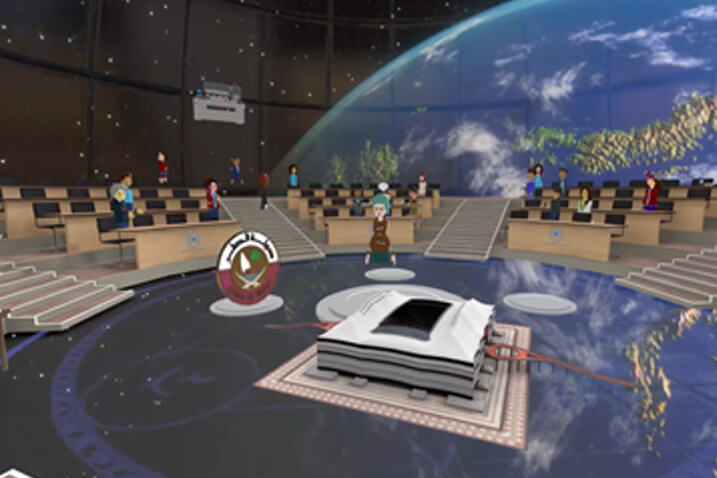SNEAK PEEK
- By being the first university to enter the immersive virtual world known as the metaverse, Qatar University created history.
- The most recent action was made possible by the execution of an agreement with Metavisionaries.
- The partnership aims to provide students with access to cutting-edge technologies, such as the growing Web 3.0 industry, as well as curricula about space.
By becoming the first university to access the metaverse—a fictional version of the internet that operates as a single, pervasive, and immersive virtual environment—Qatar University made history.
The metaverse, which has been called the “future of interactions,” is a network of three-dimensional virtual spaces geared toward social interaction and is made possible by virtual reality and augmented reality equipment.
#Qatar_University Hosts an Event that Aims to Enter the World of Digital Space.
Read more: https://t.co/nsyhdzVUgU pic.twitter.com/KktAzdaGrQ
— جامعة قطر (@QatarUniversity) August 13, 2022
Metavisionaries is a community of change agents, thought leaders and business experts committed to extending access to the space economy and cutting-edge technology to address present and future sustainability challenges.
Through the partners of Metavisionaries, ICE Cubes, and the Malleth II Program, a video of Dr. Omar Al-Ansari, vice president for academic affairs at Qatar University, was sent to the International Space Station as part of this collaboration.
He further added that in it, he said that he is proud to be inspiring our next generation with Metavisionaries by making space curricula widely available and giving people immersive learning experiences to get them ready to create a better and more sustainable future.
The collaboration intends to give students access to cutting-edge technologies, including the expanding Web 3.0 market, as well as space-related curricula.
Not only that, but Professor Rana Sobh, Dean of the College of Business and Economics at Qatar University (QU), entered the metaverse for the first time to deliver the keynote talk at the Metavisionaries opening party about the future of education.
Space scientists like Dr. Tara Ruttley, a former NASA assistant chief scientist, and Dr. James Green, a former NASA head scientist, were present at the event in addition to educators.
‘The pandemic accelerated the rate of technology adoption in the education industry,’ said Wasim Ahmed, CEO of Metavisionaries. Education is being redefined thanks to Web 3.0 and the Metaverse. In this way, the relationship with Qatar University exemplifies the university’s resolve to take the lead in facilitating and directing the transition to better prepare future generations for the future of work.
The Metaverse has gotten involved in schooling before. By the end of 2022, Todai, or the University of Tokyo, will start providing a variety of courses in the metaverse.









